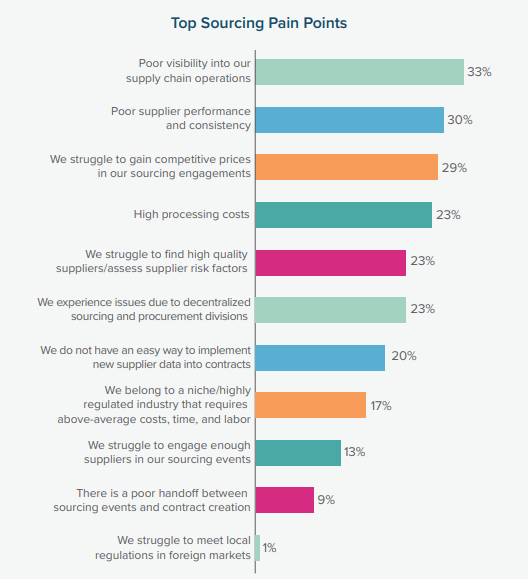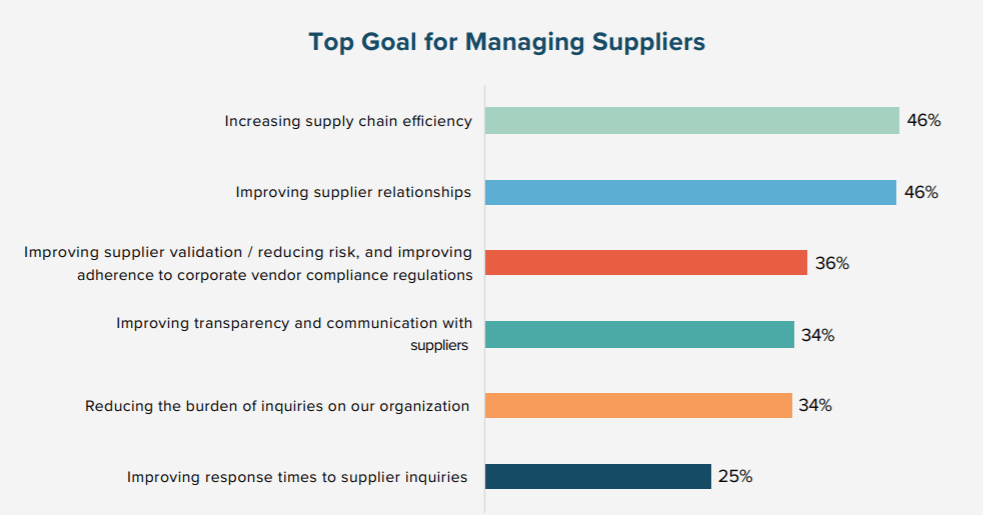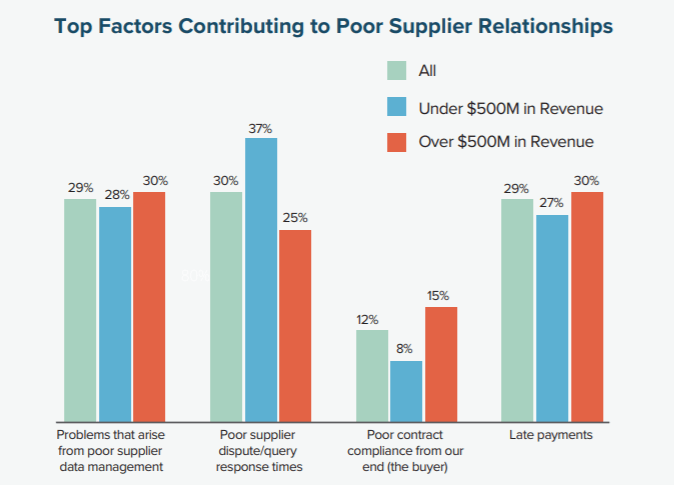Your business model is tried and true, and your staff members are motivated and talented. However, there’s one aspect of your business that can make or break your operations. It’s your vendors. A good relationship with the right vendors offers you products and services that improve your brand, tame supply chain complexities, and deliver better user experiences. Here are some reasons to nurture beneficial vendor relationships, incentives to do effective compliance management, and some questions to ask during vendor selection.
Benefits of Vendor Management
The increasing globalization of markets has brought opportunities as well as risks to businesses of all sizes. It’s becoming more common for governments to place stricter regulations on companies to combat the risks of bringing inferior or unsafe products to consumers or cheating laborers on an international scale. Compliance with those regulations extends to the company’s entire supply chain. An organization that does business with non-compliant vendors exposes itself to fines, legal battles, and loss of confidence with consumers. In a previous blog, we discussed the benefits of implementing vendor management in your organization.
5 Vendor Selection Process Questions to Ask Your Team
According to a recent report by Levvel Research, some of the biggest sourcing pain points include poor supply chain visibility, poor vendor performance, and consistency, difficulties in finding high-quality vendors, and poor vendor engagement.

All procurement teams assess their own individual vendor-related pain points and requirements before engaging in a selection process.
These questions to ask when evaluating a vendor can assist in determining whether they meet your business requirements and standards, ensuring a seamless partnership.
1. What are Our Company’s Supply Requirements?
Before searching for the best vendors for your project, you’ll need to establish the specifications for the products and services that you want to buy. Knowing these details will narrow down your vendor search to supply companies that have the expertise and infrastructure to deliver the needed items in the quantities and time frames in which you need them.
2. Who Will Evaluate Potential Vendors During the Vendor Selection Process?
As a procurement officer, you become very knowledgeable about the products and services that your company buys regularly. However, relying on your limited knowledge during the vendor selection process is a recipe for long-term supply chain problems. Consider tapping domain experts from other departments such as engineering, quality control, marketing, and finance.
3. What Did We Garner from the Vendor Facility Visit?
When your company needs a product that must be built to exacting standards and in large volumes, it’s unlikely that you’ll evaluate a vendor based on its marketing materials alone. You’ll want to make an in-person visit to the proposed vendor’s facility to learn more about its operations. During that visit, you and your team will want to take note of the vendor’s plant capacity, current volume of work, manufacturing processes, and work environment.
4. Do We Need an Off-shore or Local Vendor?
Off-shore vendors deliver commodity goods to companies around the world inexpensively and quickly. However, businesses that want to introduce proprietary-style goods to the marketplace may want to consider on-shore vendors to avoid intellectual property theft. The United States has clear regulations in place to protect intellectual property, and its courts enforce those laws with rigor. You may not find the same laws and level of enforcement in other countries. It is important to carefully consider both the positives and negatives to adopting corporate social responsibility in procurement.
5. When is the Lowest Bidder Not the Right Choice?
Before the vendor selection process begins, you and your team should decide when not to choose the lowest bidder for your supply contract. It’s often tempting to select a supply company that comes in with a low bid that equates to better profit margins for your company. You need to resist this temptation by considering other factors such as the level and quality of services rendered or of products delivered.
5 Vendor Selection Questions to Ask Potential Vendors
Once you have established your workforce’s vendor requirements and opinions it is then time to begin the vendor selection process.
According to Levvel, the biggest goals for managing vendors include increasing supply chain efficiency, improving vendor relationships, and reducing risk/improving compliance.

Based on these leading vendor management goals, there are a certain set of questions that should be asked in order to narrow down the list of potential vendors to ones that are right for your project.
1. What are Your Core Values and Ethical Credentials?
Your company has done a great job of establishing a brand that is above reproach when it comes to environmental stewardship and fair labor practices. Don’t let a vendor’s substandard practices mar your company’s reputation in the marketplace and set it up for regulatory fines. Find out if the potential vendor has a track record of ethical practices that matches your company’s core values. If no ethics audit results are available from a third-party organization, ask the vendor compliance officer if his or her company is willing to undergo initial and ongoing ethics audits for the term of its contract with your company.
2. Can You Prove That You Implement Exceptional Quality Standards?
A common supply chain issue among large and small businesses is the delivery of substandard products by vendors. Supply companies that set up quality standards and carry out effective quality initiatives should be rewarded. Find out if your proposed vendor has certified quality standards that have been recognized by a respected third-party organization such as the International Organization for Standardization.
3. Do You Have the Capacity to Meet Various Supply Requirements?
When you are in search of a long-term vendor relationship, you want a company that can scale its production activities to meet requirements at various stages of your project. Asking the vendor about its current volume of work and total production capacity will give you an idea about the vendor’s ability to increase or decrease production for your company as needed.
4. Do You Have a Track Record of Success With Other Clients?
Your vendor must understand your organization’s business model and its requirements to build a good relationship with your company and comply with its standards. If a vendor failed to meet the expectations of a company that’s like yours, you have an indication that the vendor won’t meet your company’s requirements either.
A clear understanding of requirements and capacity between your organization and potential vendors will ensure that you maintain strong relations.

5. Do You Have a Robust Communication Strategy?
Today’s supply chains are notoriously complex, and communication breakdowns are common. Ask your vendor about its proposed communication strategy. Many companies use software tools to discover supply chain bottlenecks and communicate about them quickly with stakeholders. Make sure that your chosen vendor uses such tools.
Every business that is serious about continued growth must consider vendor relationship management. Establishing win-win relationships with vendors begins with an effective vendor selection process. See how SoftCo supports seamless vendor collaboration—Request a Demo today.



